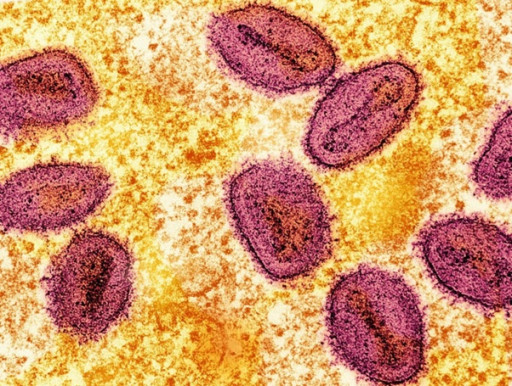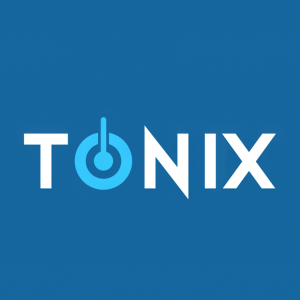New Hope for Mpox? How TNX-801 Could Meet the WHO's Vaccine Targets for a Safer, Single-Dose Solution
Rhea-AI Summary
Tonix Pharmaceuticals Holding Corp. (NASDAQ:TNXP) is developing TNX-801, a promising single-dose mpox vaccine candidate that aligns with the World Health Organization's (WHO) preferred target product profile. TNX-801 shows potential advantages over current FDA-approved vaccines Jynneos and ACAM2000, including better tolerability, single-dose protection, and suitability for immunocompromised individuals. The vaccine has demonstrated efficacy against the new, more lethal Clade I mpox strain in preclinical trials. TNX-801's lyophilized version can be stable at ambient temperatures, making it more accessible in regions with cold-chain infrastructure. Tonix has partnered with Bilthoven Biologics to scale up production, potentially enabling global distribution to address the urgent need for a safer, more effective mpox vaccine.
Positive
- TNX-801 aligns with WHO's preferred target profile for a single-dose mpox vaccine
- Preclinical trials show single-dose protection against the more lethal Clade I mpox strain
- Better tolerability and potential suitability for immunocompromised individuals
- Lyophilized version stable at ambient temperatures, improving distribution potential
- Partnership with Bilthoven Biologics for scaled-up production
Negative
- TNX-801 is still in investigational stage and not yet approved for any indication
- Efficacy and safety in humans yet to be demonstrated through clinical trials
News Market Reaction – TNXP
On the day this news was published, TNXP declined 1.29%, reflecting a mild negative market reaction.
Data tracked by StockTitan Argus on the day of publication.
This post was written and published as a collaboration between the in-house editorial team at Benzinga and Tonix Pharmaceuticals Holding Corp. with financial support from Tonix. The two organizations work to ensure that any and all information contained within is true and accurate as of the date hereof to the best of their knowledge and research. This content is for informational purposes only and not intended to be investing advice.
CHATHAM, NJ / ACCESSWIRE / September 18, 2024 / The mpox virus, formerly known as monkeypox, has increasingly become a global health concern, especially with rising cases of a new lethal strain across Africa and parts of Europe and Asia. In response to the spread of this dangerous disease, the World Health Organization (WHO) declared a Public Health Emergency of International Concern (PHEIC) and highlighted an urgent need for a single-dose mpox vaccine. While two vaccines - Jynneos® and ACAM2000® - are currently approved by the U.S. FDA, they come with such limitations that there is an urgent need for new vaccines. This has increased attention toward new vaccine candidates like Tonix Pharmaceuticals Holding Corp.'s (NASDAQ:TNXP) TNX-801, a live-virus vaccine candidate that could potentially offer a more viable solution to address the growing global mpox crisis.

Tonix's TNX-801 shows promise as it seems to align with the WHO's recently issued preferred target product profile (TPP), which emphasizes a well-tolerated, single-dose vaccine that can be administered, shipped and stored in Africa and around the world.
Limitations Of Current Vaccines: Jynneos® and ACAM2000®
The two FDA-approved vaccines for mpox, Jynneos and ACAM2000, may be deployed in the immediate fight against the virus, but neither fully meets WHO's updated targets for a single-dose vaccine that can meet the world's needs. Jynneos, produced by Bavarian Nordic, is a non-replicating vaccinia vaccine administered through sterile injection in a two-dose regimen. While effective, this multi-dose approach poses logistical challenges, particularly in emergency scenarios where rapid, widespread vaccination is crucial. People often fail to complete the two-dose series, reducing the vaccine's overall effectiveness. Moreover, Jynneos requires sterile injection and frozen-cold storage, which limit its distribution in regions like Africa, where refrigeration infrastructure is lacking - further complicating efforts to curb the spread of mpox.
On the other hand, ACAM2000, developed by Emergent BioSolutions, offers a single-dose live-virus option but comes with safety concerns. ACAM2000 carries a Black Box warning due to its potentially severe side effects, including myocarditis, encephalitis and other life-threatening conditions. The toxicity risks associated with ACAM2000 potentially make it unsuitable for widespread use, especially among individuals with compromised immune systems, where the need for safer alternatives becomes even more critical.
The Promise in TNX-801
Tonix Pharmaceuticals' TNX-801* potentially offers a much-needed alternative. Built on a synthetic horsepox platform, TNX-801 is structurally closer to the original 19th-century vaccine developed by Dr. Edward Jenner, which successfully eradicated smallpox. TNX-801 appears to deliver immune protection with better tolerability than more virulent 20th-century vaccines from which ACAM2000 was derived. Animal studies suggest it may be suitable for use in immunocompromised individuals, a population particularly vulnerable to certain of the adverse effects associated with the more virulent 20th-century vaccines.
Preclinical trials have demonstrated that TNX-801 provides single-dose protection against the newly spreading strain called Clade I monkeypox virus. The new Clade I strain has a higher fatality rate than the Clade IIb strain involved in the 2022 global mpox outbreak. In studies on immunocompromised animals, TNX-801 not only prevented clinical disease but also reduced viral shedding in the mouth and lungs, indicating its potential to block forward transmission of the virus, a key factor in limiting the spread of contagious diseases.
Furthermore, TNX-801 is suitable for making lyophilized versions which, even when reconstituted are expected to be stable at ambient temperatures for approximately 8 hours, making it a more accessible option for distribution in regions where cold-chain infrastructure is limited. This could significantly enhance the vaccine's reach in Africa and other parts of the world where mpox is currently most prevalent and where distribution challenges are particularly acute.
Why Single-Dose Vaccines are Crucial
The WHO has explicitly outlined the need for a single-dose mpox vaccine in its preferred TPP. Single-dose vaccines streamline the logistics of vaccination campaigns, reduce the likelihood of dropouts between doses and allow for more efficient "ring vaccination" strategies. These are critical for controlling outbreaks and preventing the virus from spreading beyond the initial clusters of cases, which can quickly spiral into larger outbreaks if not contained early.
Tonix reports that TNX-801 has demonstrated single-dose activity in animals. Its ability to eliminate the need for multiple doses makes it well-suited to meet this WHO target. Importantly, TNX-801's ability to induce long-lasting immunity, similar to Jenner's smallpox vaccine, suggests that it will not require frequent boosters like mRNA vaccines, which have to be administered every six months. This durability of protection is particularly important for global immunization strategies where long-term immunity can help prevent recurring outbreaks.
Competitive Features: Durable Protection, Tolerability and Scalability
Beyond its alignment with WHO's single-dose requirement, TNX-801 seems to offer multiple competitive features that could position it as a viable contender in the global fight against mpox. First and foremost, the vaccine has shown better tolerability than other 20th-century live-virus vaccinia vaccines from which ACAM2000 was derived. In animal trials, TNX-801 demonstrated low reactogenicity in animals, meaning it is less likely to cause severe adverse reactions than ACAM2000. In addition, TNX-801 was well tolerated in immunodeficient mice, which suggests it will be suitable for immunocompromised individuals, a key population at risk during mpox outbreaks.
Additionally, TNX-801 is believed to stimulate long-lived T-cell immunity, which may provide durable protection against future outbreaks. This long-term protection has the potential to prove crucial as the world faces a rising threat of orthopoxviruses since this is the second mpox global health emergency in only two years. Two years ago, the less lethal Clade II strain of mpox infected more than 30,000 Americans. The durable immunity underscores the vaccine's utility beyond the immediate crisis.
Tonix has also announced a collaboration with Bilthoven Biologics, part of the Cyrus Poonawalla Group, the world's largest vaccine manufacturer. This partnership aims to scale up the production of TNX-801 using conventional cell culture systems, which should facilitate mass production and potentially make the TNX-801 vaccine available on a global scale, ensuring that regions most in need have access to this prevention tool.
A Promising Solution in The Face of Growing Threats
As the world grapples with the growing threat of mpox, particularly the more virulent and lethal Clade I strain, the need for an effective, safe and scalable vaccine is more urgent than ever. TNX-801's ability to deliver single-dose protection, coupled with its improved tolerability and scalability, makes it a potentially strong candidate to meet the WHO's guidelines for controlling the new mpox emergency and preventing future outbreaks.
Tonix Pharmaceuticals is not only addressing the current mpox crisis but also looking to position itself as a leader in developing vaccines for future pandemics. The company says that TNX-801's versatile platform could be adapted to protect against a range of other infectious diseases, potentially making it a key player in global health preparedness, especially as the world continues to face evolving threats from viral outbreaks.
In an environment where infectious diseases are rapidly evolving, vaccines like TNX-801 represent the future of outbreak prevention. With its alignment with the WHO's stringent target product profile and its potential for global distribution, TNX-801 has the potential to become the cornerstone of mpox prevention efforts worldwide, ensuring that regions most affected by the virus have access to immunization options that provide durable protection, tolerability and scalable production.
*TNX-801 is an investigational new biologic and has not been approved for any indication
Featured photo by National Institute of Allergy and Infectious Diseases on Unsplash.
Click here for more information on Tonix Pharmaceuticals:
https://redingtonvirtual.com/tnxp-aw-24092/
Investor Contact
Jessica Morris
Tonix Pharmaceuticals
investor.relations@tonixpharma.com
(862) 904-8182
SOURCE: Tonix Pharmaceuticals
View the original press release on accesswire.com







